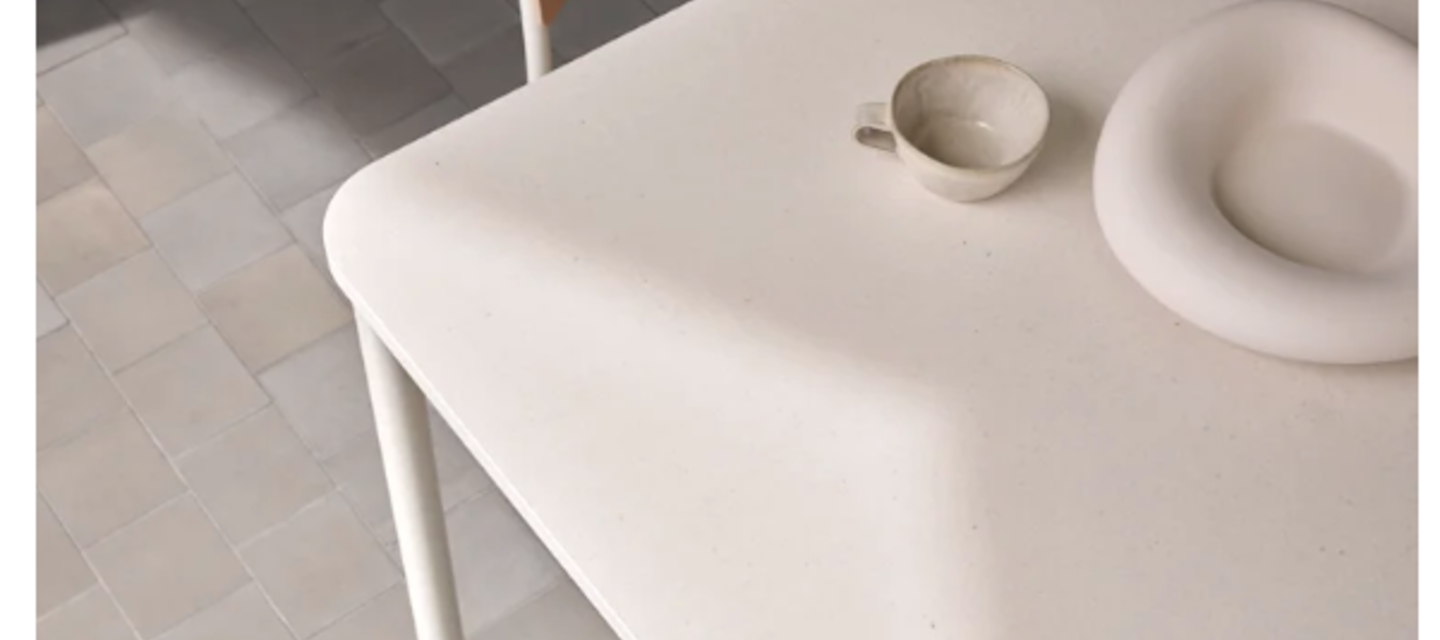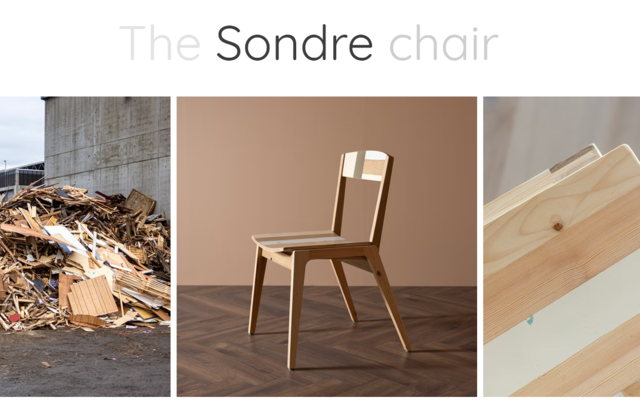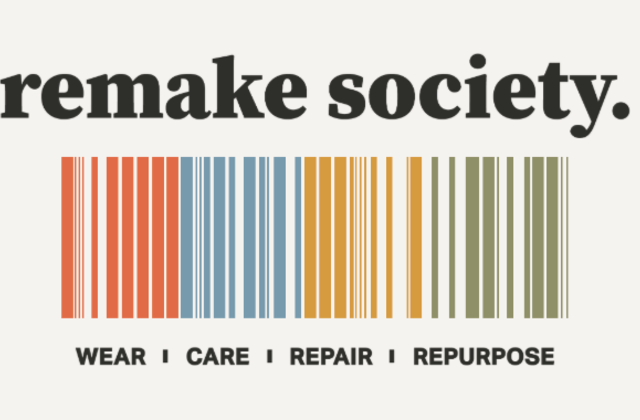Fashion, clothing and textiles, Furniture
What is it? Kvadrat produces high quality textiles. Its initiative "Kvadrat Really" upcycles end-of-life textiles into premium-quality materials for interior and industrial-scale projects like a Textile Tabletop™, Textile Board and Textile Felt.
Why is this important? The textiles industry consumes significant amounts of water and energy, and, depending on the type of material (e.g., wool, polyester, cotton etc.), the production contributes to significant amounts of carbon emissions. It contributes to toxic chemicals use in agriculture and manufacturing stages such as pre-treatment and dyeing, and waste volumes of textiles are on the rise (Allwood et al., 2006; Ellen MacArthur Foundation, 2017). It is estimated that only 25% of the 95% of textiles that can be recycled are actually being recycled (Kvadrat Really, 2025a). In this way, the industry generates significant amounts of waste and fails to capture potential economic value as well.
Main resource strategy: Different forms of closing loops: Kvadrat envisions a circular future where textiles are thoughtfully collected reused and recycled. The company places strong emphasis on transforming textile waste by recycling textile waste into innovative products such as tabletops and new textile materials such as Amé and Graphite.
Other resource strategies: Recovering and regenerating: Kvadrat is also exploring other raw material sources such as ocean-bound plastic waste collected at maximum 10km from the sea in Thailand and recycling them into yarn to create new fabrics.
Business model aspects:
- Value Proposition: Kvadrat offers durable high-quality textile products that come with a 10-year warranty—and when properly cared for can last up to 25 years (Kvadrat, 2025a). Positioned in the premium market segment Kvadrat’s products embody a long-lifetime high-value model.To advance circularity and close the material loop Kvadrat has developed several products that recycle textile waste. Examples include "Really" tabletops and solid boards made entirely from recycled textiles "Amé", an upholstery fabric, and "Graphite", a roller blind crafted from 100% textile-to-textile recycled yarn(Kvadrat, 2025b).
- It is part of Kvadrat’s sustainability strategy to increase the amount of recycled products with the same durable performance and 10 year warranty as products with virgin material. Products made out of reclaimed materials come at a higher cost and are therefore offered at a higher price. Customers can also use their products to meet carbon emissions targets for building renovation projects for instance.
- Value Creation & Delivery: Kvadrat collaborates with their customers to take back textiles for reuse in other products like tabletops and acoustic felts e.g. used in customer shops. They also work with other companies like Tide to create fabrics out of ocean-bound plastic waste (Kvadrat, 2025b).
- Value Capture: Kvadrat operates a premium pricing model where a high quality product with a longwarranty is offered at a higher price. In addition a service and maintenance model is operated where customers can pay for a service contract through an external partner which includes maintenance and repairs of Kvadrat rugs (Kvadrat, 2025b).
Strategies for degrowth/ sufficiency: To ensure a longer lifetime the Textile Tabletop™ made from used textiles comes with a 5-year warranty. Service and maintenance contracts are also offered along with rugs and roller blinds products to extend the product lifetime.
Business model experimentation practices: Kvadrat operates in the business-to-business sphere where they sell textile as an input to other finished goods like furniture but started experimenting with its own products like table tops and shades under the Really brandname. It has also started experimenting with a take-back system for its shades (cold and heat blocking insulating shades for buildings which are harder to recover, because the textile is made out of a mix of fabric and aluminium). Kvadrat collaborates amongst others with universities to experiment with material recovery options for these shades.
Sustainability outcomes: Kvadrat Really's Textile Tabletop™ has an estimated 30% reduction in CO2-equivalent emissions compared to a conventional tabletop, based on a lifecycle assessment including the stages from material extraction to a finished tabletop (Kvadrat Really, 2025b). In 2025, Kvadrat reduced the CO2 footprint of its Textile Tabletop™ from 13.3 kg/m2 to 8.4 kg CO2 (Kvadrat Really, 2025c).
Sources:
Allwood, J. M., Laursen, S. E., De Rodríguez, C. M., & Bocken, N. M. (2006). Well dressed. The present and future sustainability of clothing and textiles in the United Kingdom. IfM, Cambridge, UK.
Ellen MacArthur Foundation (2017). A new textiles economy: Redesigning fashion’s future. available at: https://www.ellenmacarthurfoundation.org/a-new-textiles-economy
Kvadrat (2025a). Interview with supply chain experts at Kvadrat, 16 September 2025.
Kvadrat (2025b). Email exchanges with innovation experts, October 2025.
Kvadrat Really (2025a). About us. Accessed 17 September 2025 at: https://www.kvadrat.dk/en/kvadrat-really/about
Kvadrat Really (2025b). Textile Tabletop™. Accessed 17 September 2025 at: https://www.kvadrat.dk/en/kvadrat-really/kvadrat-really-products/textile-tabletop
Kvadrat Really (2025c). A pioneering initiative. Accessed 17 September 2025 at: https://www.kvadrat.dk/en/kvadrat-really
***
About project Circular X
Project Circular X is about ‘Experimentation with Circular Service Business Models’. It is an ambitious research project funded by the European Research Council (ERC) which supports top researchers from anywhere in the world. Project CIRCULAR X runs from 2020-2027. The project is led by Principal Investigator (PI) Prof Dr Nancy Bocken, who is joined by a multidisciplinary team of researchers at Maastricht Sustainability Institute (MSI), Maastricht School of Business and Economics, Maastricht University. The project cooperates with businesses who want to innovate towards the circular economy.
Project Circular X addresses a new and urgent issue: experimentation with circular service business models (CSBMs). Examples of such new business models include companies shifting from selling products to selling services and introducing lifelong warrantees to extend product lifetimes. However, CSBMs are far from mainstream and research focused on experimentation is little understood. The research aims to conduct interdisciplinary research with 4 objectives:
- Advancing understanding of CSBMs; their emergence and impacts
- Advancing knowledge on CSBM experimentation
- Developing CSBM experimentation tools
- Designing and deploying CSBM experimentation labs
Funding source
This project has received funding from the European Research Council (ERC) under the European Union’s Horizon 2020 research and innovation programme, grant agreement No. 850159.
Using of this information
When you refer to this case, please use the following source:
Circular X. (2025) Case study: Kvadrat - multiple value streams. Accessed from www.circularx.eu



